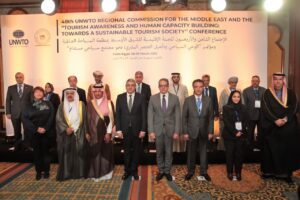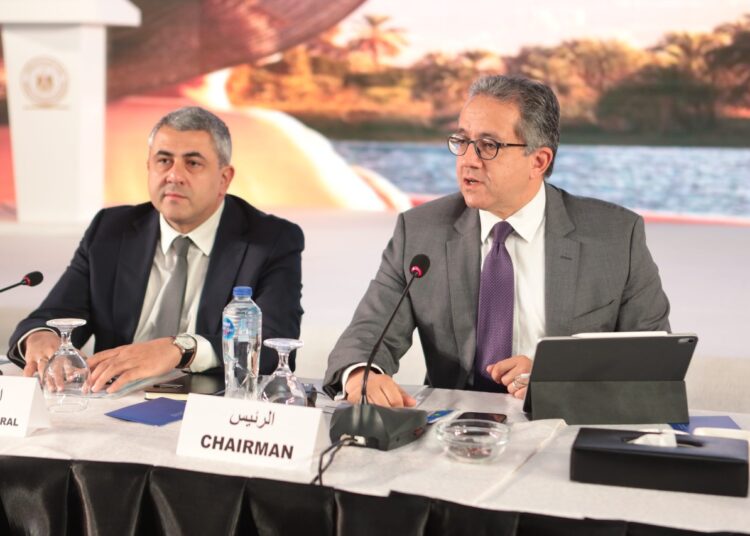The Regional Committee for the Middle East of the World Tourism Organisation (UNWTO) reviewed last Monday a series of recommendations for advancing tourism in the region.
The review came during the 48th meeting of the committee, which was held in Cairo on March 28 and 29.
A stress was laid during the meeting on the importance of diversifying and integrating tourism components and products among the countries of the region.
Minister of Tourism and Antiquities, Khaled el-Anani, said each of the region’s states has its own peculiar tourist attractions and products.
These attractions and components, he said, distinguish each regional state from the other.
“The achievement of integration among these states will contribute to encouraging the tourist movement among them,” the Egyptian minister said.
A large number of regional tourism and UNWTO officials attended the meeting, including organisation Secretary-General, Zorab Pololicashvily, and Regional Director, Basma Al-Maiman.
Minister el-Anani called for including tourism principles in school curricula in all regional states.
This, he said, would familiarise school pupils with tourism and its importance for their economies of their countries.
Participants in the meeting also recommended the creation of flexible and modern databases for all tourism workers.
They also called for the creation of an integrated mechanism to solve the problems of tourism workers, especially at the times of crises.
Discussions during the meeting focused on the recovery of the sector and UNWTO’s most important initiatives and activities.
The discussions also included a review of tourism conditions at the international level, against the background of Covid-19 and political developments around the world.
The second meeting of the committee is scheduled to be held in Jordan in the second half of 2023. The following meeting will be held in Lebanon in 2024.
Jordanian Minister of Tourism, Nayef Al-Fayez, said his country hopes the committee meeting in it would be an opportunity for greater co-operation among regional states.
He highlighted the need for more training for tourism workers with the aim of raising their professional efficiencies.
Al-Maiman, for her part, talked about the activities of UNWTO at the regional level last year and the beginning of this year.
The organisation, she said, is ready to co-operate in programmes that encourage policies that promote the growth of this important sector of regional economies, especially at this time of the pandemic and beyond it.







Discussion about this post